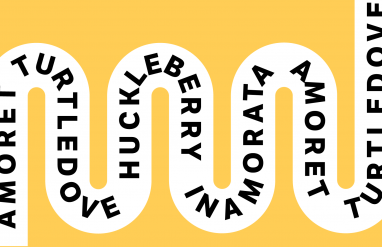A nickname by any other name would smell just as sweet. Okay, so maybe that’s not how the saying goes, but we happen to think it’s true anyway. Nicknames are names that are substituted for the proper name of a person or place, like calling LeBron James “King James.”
Nicknames are created for many different reasons. Sometimes they evolve naturally out of close association with someone. Other times, they may take hold based on qualities or features someone is well known for. There are a lot of different types of nicknames, as well as words we can use to describe them. From pet name to internet handle, here are 11 other words to use to talk about nicknames and the unique history of each one.
pet name
A pet name is a nickname that might exist within a family or close relationship. It means “a name or a term of address used to express affection for a person, thing, etc.” The term has been around for more than 100 years, first appearing in English between 1910 and 1915. Because pet names are typically affectionate, they’re nicknames you might hear a parent using for a child or siblings using to identify one another. A pet name probably isn’t something you’d hear in less familiar settings.
AKA
AKA (or A.K.A.) stands for “also known as.” If you have a nickname, you are “also known as” that name. This abbreviation, which entered English in the late 1940s, is used by law enforcement to specify an alias. But it’s also commonly used to indicate that a person goes by another name in many different settings. And it can be used facetiously to share extra information about someone. For example, My sister, AKA the most organized person in the entire world, somehow forgot my birthday.
handle
In the digital age, most of us have some kind of handle. That’s “a username, as on a social media website.” And yes, that counts as a type of nickname. It’s another name you’re known by, after all, even if it’s only among online friends. The word has existed in English since before the year 900, though it didn’t come to be associated with names until the 1830s, when it was used more generally to mean “nickname.” The term eventually came to include radio nicknames, and later, usernames on the internet.
sobriquet
Say nickname, but make it fancy. Essentially, that’s what sobriquet does. This word, borrowed from French, literally means “nickname.” In many cases, sobriquet indicates playfulness or a nickname that is used in jest. This might mean a childhood pet name or a funny name used between friends. The word sobriquet entered English in the 1600s.
moniker
Any name you go by can be considered a moniker. This term simply means “a person’s name, especially a nickname or alias.” The origins of this word aren’t exactly clear. One possibility is that it’s associated with monk, as nuns and monks frequently change their names upon taking their vows. It may also be a permutation, or transformation, of the Old Irish ainm, meaning “name.”
⚡️ How official can a nickname be? Find out if you can run for president using a nickname!
pen name
Sometimes nicknames are used for professional reasons, as is demonstrated by the phrase pen name. A pen name is “a pseudonym used by an author.” This might be a variation of their real name or a different name entirely. Mark Twain, for example, is a pen name used by Samuel Langhorne Clemens. Meanwhile George R. R. Martin is the author’s real name, but R. R. is used in place of Richard Raymond. Pen name is a translation of the French nom de plume, and it has been in use in English since the 1800s.
byname
What’s your byname? A byname is “a secondary name,” whether that’s a surname, a nickname, or something else. This term may be used to describe any type of nickname, rather than only nicknames that are familiar or used for a specific purpose. Think of it as another way of saying “a name you go by.” Though it’s not commonly used now, the word byname has existed in English since the 1300s.
cognomen
We bet you didn’t know you have a cognomen. While this word might look like the name of some kind of scary medical condition, it actually means “any name, especially a nickname.” Nomen means “name” in Latin, and co or cog means “with.” This 19th century word, then, literally means “with name,” and it can be broadly used to talk about any type of nickname.
appellation
A more official nickname might also be called an appellation. This word, which entered English in the early 1400s, means “a name, title, or designation.” Often, an appellation indicates a more official or well-known designation than just a familiar nickname. Think: Alexander The Great or the early American leaders known as The Founding Fathers. An appellation may also include an official title, such as doctor, bishop, or duke.
term of endearment
Nicknames are for lovers, at least in this case. A term of endearment is a nickname that shows esteem, affection, or love. This may be more personal, like a pet name, or it might include commonly used affectionate names, like honey, baby, or sweetie. Terms of endearment are typically reserved for intimate relationships, though some could also apply to family or close friends.
nom de guerre
Authors aren’t the only people who sometimes change their names. A nom de guerre is another way of saying pseudonym. It’s “an assumed name, under which a person fights, paints, writes, etc.” In French, nom de guerre meant “a war name,” or a name taken by a soldier upon entering the armed services. In English, it’s more generally understood to mean any kind of assumed name, whether it’s Stefani Germanotta being known as the musician “Lady Gaga” or Erik Weisz assuming the magician name of “Harry Houdini.”
Test your nickname knowledge with our quiz
Keep this compilation of nickname words at your fingertips by referring to our handy “handle” word list whenever you need to. If you’re looking for a challenge, a quick quiz on these words has arrived in the nick of time, so you can see how well you know your pet names from appellations.













